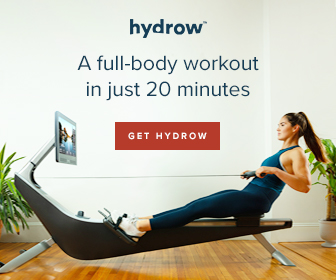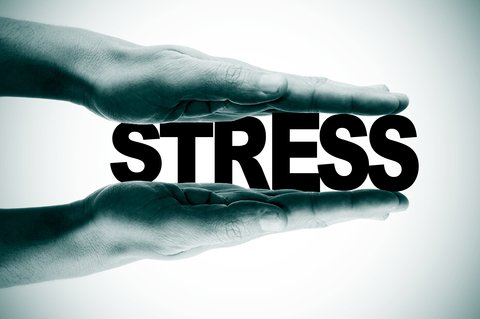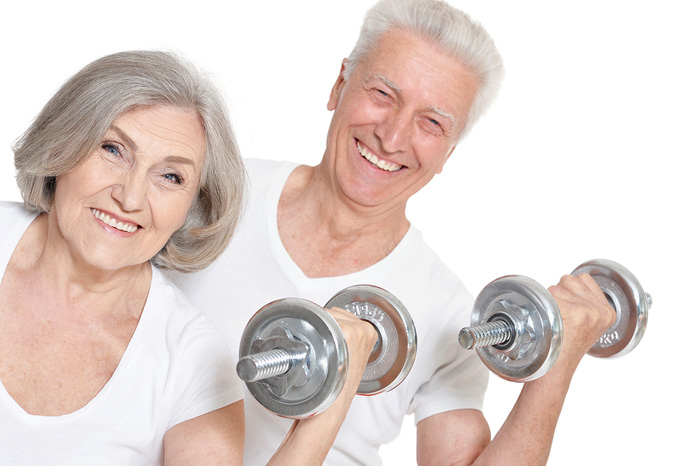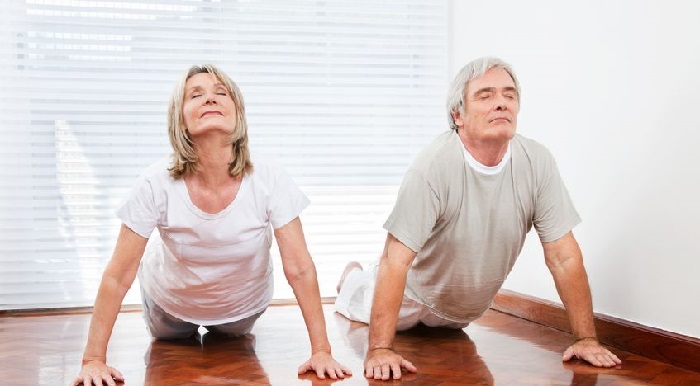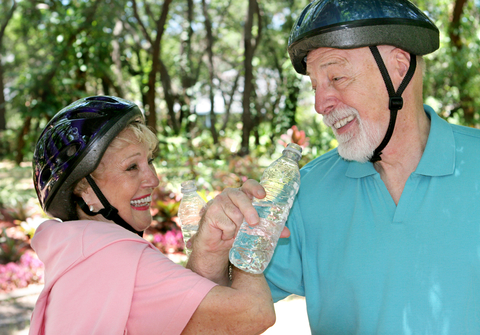Physical Fitness Trainer for Older Adults - What to Look For
More and more older adults are choosing a physical fitness trainer to help them with their health goals as they age.
The concept of physical fitness shifts somewhere around the age of 40. Perhaps, earlier in life, you may have exercised to perform amazing physical feats, develop head-turning six-pack abs, or to look spectacular in your bathing suit. Later in life, your focus may shift toward thinking of exercise as a way to live longer, ward off stress, recover from an illness, or control the symptoms of a disease.
You may now want to improve your flexibility and balance, and protect your muscles and bones from injuries. Then, again, you may want to defy your age when you slip into a bathing suit. Any of the above reasons and more, make this the perfect time to start working with a personal trainer, and here's why.
- You may not know what your body is capable of accomplishing in its current state and at your current age. A personal trainer is likely to be able to push you further while maintaining your safety at all times. You’ll see faster results under the guidance of a knowledgeable and experienced trainer.
- It’s important to coordinate your workouts to your personal goals. What works for someone else isn’t necessarily what’s going to work for you. Personal trainers know how to plan workouts effectively, and they may introduce you to new fitness tools.
- A trainer will keep you motivated, improving the odds that you’ll stick to your workout routine long term.

As you get older, fluctuations in hormones and metabolic changes can make it more difficult to lose fat and build muscle. You may need more than a walk around the block in the evening to reach your fitness goals. A personal trainer will help you assess what is needed to create a workout plan that delivers results; but, first, you must select the right fitness trainer.
A Good Physical Fitness Trainer Needs to Listen
You may first notice a physical fitness trainer’s physique or warm smile, but pay attention to how well they use their ears.
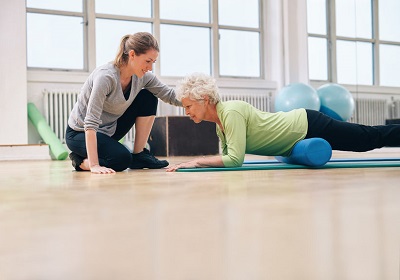
A great personal trainer will listen closely when you talk about your goals and your health. They will also ask questions to determine any risk factors, such as a history of heart attacks, a diagnosed chronic disease, arthritis, diabetes, and other conditions.
If they don’t ask about these issues and pay attention to your responses, they may not take the right safety precautions during your workouts. When a personal trainer jumps right into a workout without getting to know you a little or seems uninterested in your overall health and goals, you’re probably working with the wrong trainer.
A Good Physical Fitness Trainer Needs Experience
Your personal trainer should have a certificate proving that they have completed a training program through an accredited program. They should also have at least a year or two of experience, preferably working with clients of all ages. Some trainers focus on select clientele, so the trainer who works almost exclusively with bodybuilders in their prime may not know how to help an older adult reach their goals.
Look for someone who has successfully worked with older adults striving for goals similar to your own; and don't be afraid to ask for references. Have this experience helps a trainer to develop techniques and strategies that are more likely to deliver results for you.
A Good Physical Fitness Trainer Needs to Be Available
This is often thought of last, but it’s critical to your success. Some personal trainers are willing to work you into their schedule for a few hours each week but are otherwise unavailable. Other trainers will give you their personal phone number or email in case you have questions, but you may feel like you’re taking up their time in an awkward manner.
You may consider a virtual trainer who is readily available through the internet and may even deliver videotaped workouts online.
It’s important to be honest when determining how much support you need from your trainer. If you want someone to answer your emails and give you instruction for workouts between training sessions, it’s important to select a trainer who is open to that level of instruction. You may pay more for service from those trainers, but you’ll also have a more rewarding experience.
On the other hand, perhaps you want a trainer who can deliver a great workout in a timely manner and then leave you to enjoy your life the rest of the week. Some trainers are more personal and chit-chatty than others, and personality does matter. This is what makes selecting a personal fitness trainer such a personal journey. Strive to find someone who makes you feel comfortable and supported.
More Topics That May Interest You
Some of the advertisers on my website are affiliate partners, which means that I may receive a small commission from any sale, at no extra cost to you.
For example, the Amazon affiliate advertising program is designed to provide a means for sites to earn fees by advertising and linking to amazon.com.
Your tips and purchases help to support this free-information website.
Thank you.
The content of this website is for informational purposes only and not intended to be taken as a replacement for professional medical advice, care, diagnosis or treatment by a doctor, dietitian, physical therapist, nutritionist or fitness instructor.
DO NOT BEGIN ANY EXERCISE PROGRAM WITHOUT CHECKING WITH YOUR DOCTOR FOR UNDERLYING CONDITIONS THAT MAY PREVENT YOU FROM DOING SO.

